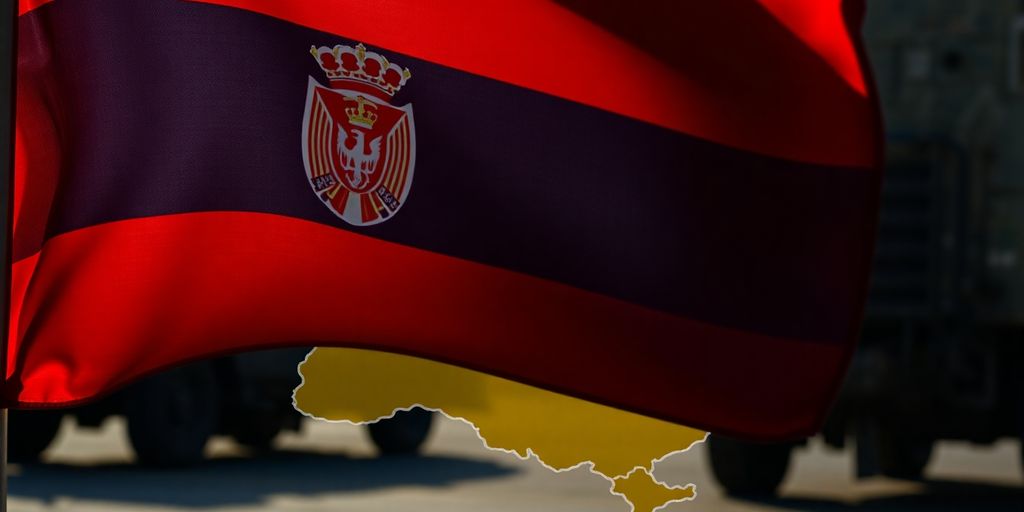Russia has accused Serbia of indirectly supplying ammunition to Ukraine through intermediaries in Eastern Europe, prompting Serbia to halt all arms exports. The Russian Foreign Intelligence Service (SVR) claims Serbian-made rockets and mortar shells are reaching Ukraine via NATO countries like the Czech Republic and Bulgaria. Serbian President Aleksandar Vučić has denied direct sales to Ukraine and announced an investigation into the allegations.
Russia’s Accusations and Serbia’s Response
Russia’s Foreign Intelligence Service (SVR) has repeatedly accused Serbia of indirectly supplying military goods to Ukraine. The SVR alleges that Serbian defense enterprises are exporting ammunition, including rockets for multiple rocket launchers and mortar shells, through intermediary countries such as the Czech Republic and Bulgaria. These exports, according to the SVR, are disguised through "fake end-user certificates" and are ultimately intended for use by Ukrainian forces against Russian personnel.
- The SVR claims Serbian manufacturers are aware their products will be used against Russian forces.
- Accusations suggest a "simple scheme" involving NATO intermediaries to circumvent direct sales.
- The SVR has labeled Serbia’s actions as a "stab in the back" and a display of "cowardice and greed for profit."
Serbian President Aleksandar Vučić has vehemently denied direct arms sales to Ukraine. Following the latest accusations, he announced that Serbia has "halted literally everything" regarding arms sales and will now prioritize supplying its own army. Vučić stated that while contracts with countries like the Czech Republic exist, no permission was granted for re-export to Ukraine. He also mentioned that a working group with Moscow would be established to investigate how Serbian-made weapons might have reached Ukraine.
Geopolitical Balancing Act
Serbia finds itself in a delicate geopolitical position, attempting to balance its historical ties with Russia and its aspirations for European Union membership. While Belgrade has condemned Russia’s invasion of Ukraine and recognizes Ukraine’s territorial integrity, it has refrained from joining Western sanctions against Moscow. Russia remains Serbia’s primary gas supplier, and its sole oil refinery is majority-owned by Gazprom.
- Serbia seeks EU membership while maintaining close ties with Russia.
- Belgrade has condemned the invasion but not joined Western sanctions.
- The country’s energy sector is heavily reliant on Russian companies.
This is not the first time Serbia has faced such accusations. In May, President Vučić pledged to investigate similar claims made by the SVR. The ongoing allegations highlight the complexities of Serbia’s foreign policy as it navigates the conflict in Ukraine while trying to preserve its relationships with both Eastern and Western powers.
Sources
- Serbia exports military goods to Ukraine via indirect routes, Apa.az.
- Russia accused Serbia of cowardice and greed for profit, ИА Ореанда-Новости.
- Russia’s spy agency says Serbia sold ammunition to Ukraine via Bulgaria, Czech Republic By Reuters, Investing.com.
- Russia’s spy agency says Serbia sold ammunition to Ukraine via Bulgaria, Czech Republic, Yahoo.
- Russia accuses Serbia of arming Ukraine and ‘stabbing Moscow in the back’, Euronews.com.






